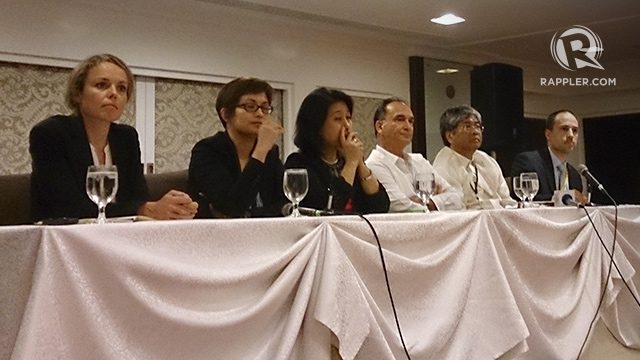SUMMARY
This is AI generated summarization, which may have errors. For context, always refer to the full article.

MANILA, Philippines – The maiden report of the Philippine Extractive Industry Transparency Initiative (PH-EITI) has revised its previously reported, unreconciled amount on revenue collections made by government agencies from extractive companies.
PH-EITI reported in December that revenue collections made by government from extractive firms in 2012 fell short by P2.87 billion ($64.45 million).
In its report released Tuesday, February 3, PH-EITI revised the unreconciled amount to now P58.2 million ($1.32 million), showing that either the government received, or the extractive companies paid, the amount. The parties however could not present equivalent proof to account for the amount.
The bulk of the P58.2 million of revenue discrepancy fell on the National Commission on Indigenous Peoples (NCIP).
NCIP’s total discrepancy amounted to P52 million ($1.18 million) or a 153% difference from the amount collected from extractive firms.
The unreconciled amount though is less than 1% of the total revenue stream, according to the report.
PH-EITI is the local counterpart of Extractive Industries Transparency Initiative, a global coalition of governments, companies, and civil society advocating for transparency in the flow of revenues from natural resources.
The Philippines is working on being included in the list of countries that comply with EITI, a seal of global approval that payments and receipts are properly disclosed.
PH-EITI is mandated to complete the country’s requirements to become a member of the global transparency initiative.
Revenues collected
PH-EITI’s maiden report is the culmination of 18 months of research, comparing and reconciling payments and collections between extractive companies and the government agencies for a period ending in 2012.
The total reconciled revenues collected by government agencies from extractive industries was P52.7 billion ($1.20 billion), PH-EITI reported.
Much of the revenue accrued from extractive firms went to two agencies, the Department of Energy (DOE) and the Bureau of Internal Revenue (BIR).
DOE collected P28.99 billion ($657.66 million) mostly from government share in oil and gas production.
BIR took in P21.36 billion ($484.46 million), mainly from excise tax on minerals and corporate income tax.
The DOE and BIR combined revenues accounted for about 95% of all reconciled amounts.
Mulling legislation

Standardizing also the method for accounting used by participants and formalizing alternative procedures – should companies block disclosure using existing legal procedures – are also being considered to improve the transparency report, PH-EITI noted.
In particular, section 270 of the National Internal Revenue Code of 1997 was highlighted as it prevents the BIR from disclosing the tax information of any taxpayer without the entity’s consent.
When asked whether the initiative would propose to reform the law, Finance Undersecretary Teresa Habitan said they are pushing for legislation that would institutionalize the reporting process, but said “we need to do it strategically.”
She emphasized the need to have prior studies to help mitigate the repercussions of repealing existing laws before any proposals should be made.
Habitan also said that PH-EITI is aiming to improve the future reports and to recommend their process to other industries and agencies as a reporting tool.
“[It’s] not to say to the government and businesses that ‘we are watching you,’ but that we are watching for you,” Habitan said.
Dr Cielo Magno, national coordinator for PH-EITI civil stakeholder Bantay Kita, said a recommendation will probably be made since part of EITI’s agenda is to present the results to Congress.
Upbeat
Despite the discrepancies, representatives of PH-EITI stakeholders were upbeat about the results.
Andrew Schloeffel, senior mining analyst at the World Bank, said, “This is actually a good news report from the government of the Philippines.”
Schloeffel said that there were indeed discrepancies, but such were in some of the smaller agencies.
36 private extraction companies in large-scale metallic mining, oil, and gas participated in the study out of the 52 invited.
But representatives mentioned they wanted to include coal mining in the report’s scope but the company responsible for the bulk of coal extraction in the country, Semirara Mining Corporation, declined to participate.
PH-EITI is governed by a multi-stakeholder group composed of representatives from the government, civil society, members of the extractive industry and the international community.
It was formed as a result of the mining industry reforms outlined in Executive Order No. 79.
“Out of all the agenda that was in EO 79, only EITI materialized so far,” Magno said. – Chris Schnabel/Rappler.com
US$1 = P44.11
Iron ore mining pit image from Shutterstock
Add a comment
How does this make you feel?
There are no comments yet. Add your comment to start the conversation.